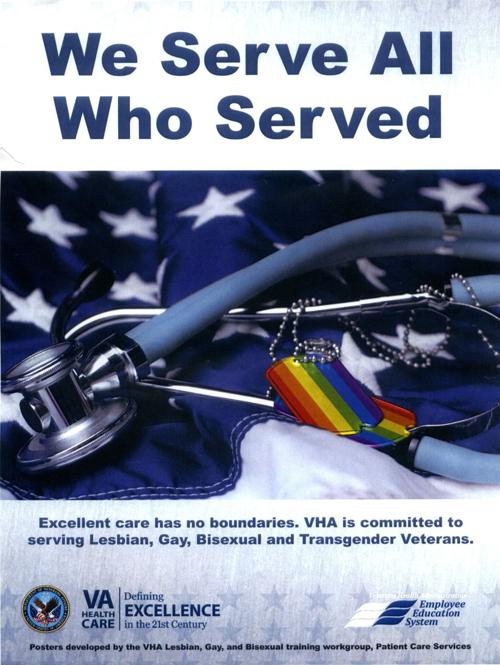Tucson’s veterans hospital has new help for military veterans who not long ago faced discrimination from their doctors.
The Southern Arizona VA Health Care System will soon become the fourth in the country with special clinic hours for transgender veterans, those who were born male but identify as female, or vice versa.
It’s a population that’s booming in Tucson, having grown from about 50 to 130 in the last five years, local VA officials said. A similar trend is occurring at VA hospitals nationwide, they said.
The new clinic is the latest of many changes that began in 2011 when the U.S. Department of Veterans Affairs ordered all its medical facilities to take better care of such patients.
Before that, discrimination was not uncommon, said Dr. Sonia Perez-Padilla, who heads the local VA’s transgender treatment team.
Most VA employees had no training in the needs of transgender patients, and some felt uncomfortable being around them, she said.
Today, many training sessions later, the situation is much better, she said, but there still may be some employees who don’t understand that being transgender “is not a choice. It’s something innate.”
Tucson’s veterans hospital is now recognized by the VA as a national center of excellence for transgender care, she said.
The VA now routinely provide treatments such as hormone therapy, mental-health care and pre- and post-operative care for sex-change surgery. The surgery itself still isn’t covered, though Perez-Padilla thinks it will be eventually.
The new clinic, which launches Wednesday afternoon, provides a place where patients can see a pharmacist, a physician, a psychologist and others experienced in transgender care — all in a single hospital visit. Details are available by calling 629-4885.
A growing body of research shows the military is a magnet for biological males with gender issues who often try to quell their inner conflict through “hypermasculine” pursuits, said Nadine Cole, a clinical psychologist on the local VA treatment team.
The suicide rate for such veterans is “20 times higher” than their peers, Cole said.
Many are combat veterans who suffer not just from war trauma but from the added angst of gender transition after they leave the military, she said.
More changes in care could follow next year when the Defense Department plans to lift its longstanding ban against transgender troops serving openly.
The ban is “outdated,” U.S. Defense Secretary Ash Carter said in announcing the move.
“At a time when our troops have learned from experience that the most important qualification for service members should be whether they’re able and willing to do their jobs, our officers and enlisted personnel are faced with certain rules that tell them the opposite,” Carter said in a statement in July.
The rule change for transgender troops is one of several under the Obama administration, which also abolished a ban on open service by gay and lesbian troops and recently opened combat positions to women.
Erin Russ of Tucson, a former Army captain who transitioned from male to female in 2001, said the changes in transgender acceptance are welcome, though long overdue.
Russ said she was kicked out of the service in 1990 following an after-hours traffic stop in which she was dressed as a woman but had a man’s military ID. She now lectures on transgender awareness to train VA personnel.
“It’s making a big difference for a lot of veterans” Russ said of the recent changes.
“The VA is moving forward and making progress faster than I could have hoped.”





